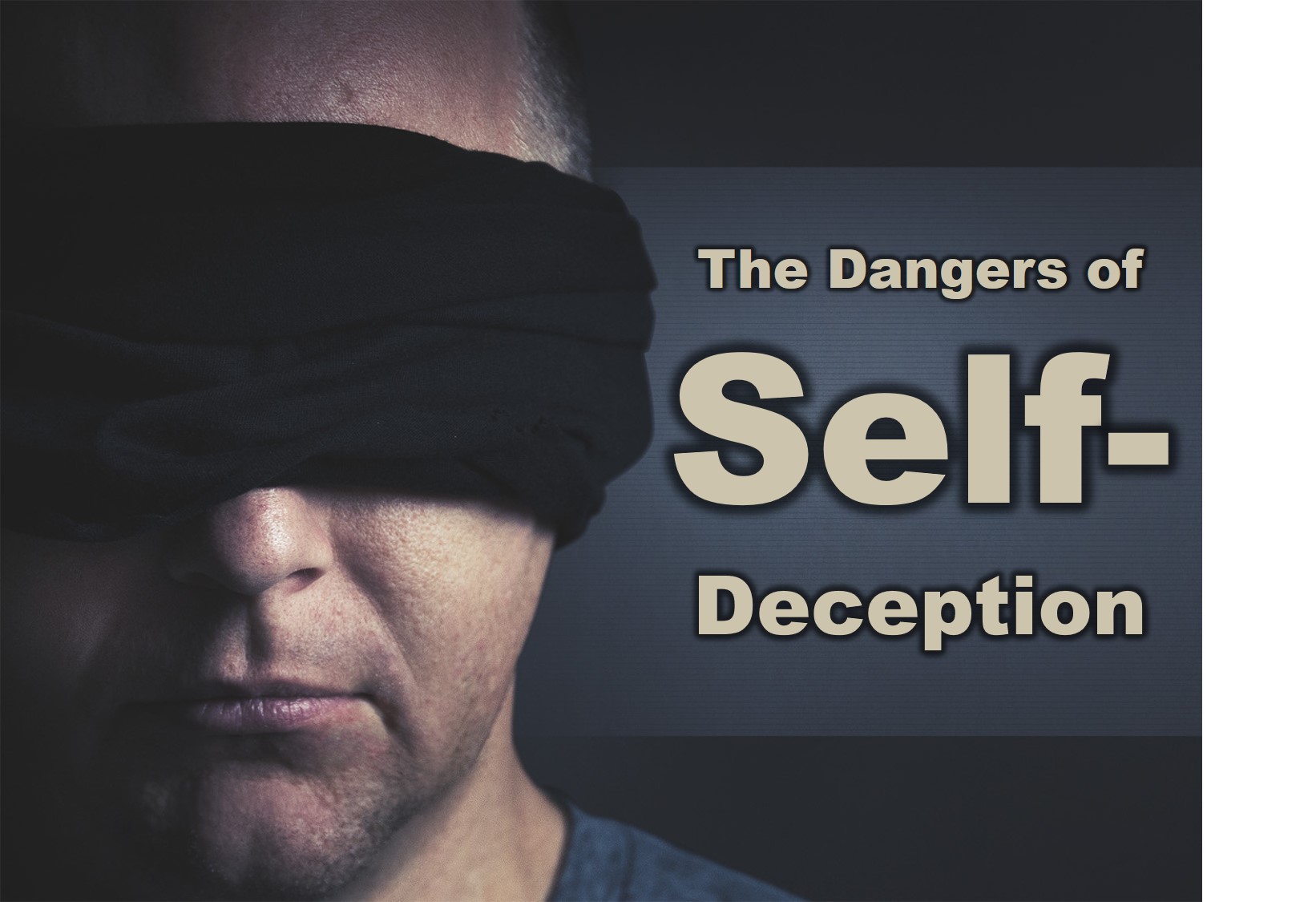Blog
Eunuchs in the Kingdom
Thursday, September 10, 2020
As is true for all people, those of us who live in 21st-century America view reality through the lens of our culture. Because of our setting, we have many preconceptions that we don’t examine because our society shares them. We assume that X is how human beings think, and we don’t realize that many human beings in other times and places have not thought that way at all.
This is perhaps most obvious when it comes to our society’s view of sexuality. To tens of millions of Americans, sexual autonomy is the preeminent value. You are defined by your sexual inclinations.
This does not make as much sense as we like to think it does. Generally, we consider it odd when people define themselves by their appetites--what they like to eat, for instance. When we’re at a party, and a new acquaintance announces, “I’m a vegetarian!”, we start edging away. Self-identification by sexual appetite, on the other hand, is serious business!
For humankind, this is not typical. All societies consider sex to be important, but rarely do they regard it as central to existence. Traits that some Americans build their lives around were and are commonly ignored.
For instance, before the advent of Western cultural hegemony, many languages didn’t have a word for “lesbian”. When Paul condemns men having sex with men in 1 Corinthians 6:9, he has to invent one of the two words he uses to do so—again, because koiné Greek didn’t have an existing word for the concept. The emphasis that we place on sexuality is cultural, not innate.
It is hardly surprising, then, when Americans have great difficulty with Biblical passages that limit sexual activity. Recently, numerous writers have tried to narrow the scope of 1 Corinthians 6:9 (arguing that it’s about prostitution, for instance) or simply have rejected it entirely. Likewise, even among brethren, Jesus’ teaching on marriage, divorce, and remarriage in Matthew 19:1-9 is widely ignored.
The textual justification for these positions is scant. Instead, they are driven by our intuitions about fairness. It strikes us as unjust to ask anyone to be celibate, particularly if (as with those who are attracted only to their own sex or are unscripturally divorced) said celibacy will be lifelong.
This poses a significant interpretive hurdle for us. In Matthew 19:12, Jesus discusses choosing to be a eunuch for the sake of the kingdom of heaven. For all the sense that makes to modern Americans, it might as well have been left in koiné Greek!
We must recognize, though, that such a view is based on our culture, not on some objective reality. From Vestal Virgins to Buddhist monks, many people in many different societies have chosen to refrain from intimacy, sometimes for a limited time, sometimes forever. Such societies regard celibacy as difficult but doable, particularly in pursuit of a higher goal, and that’s every bit as typical, perhaps more so, as the hypersexualization of our own.
There are many reasons why Christians might choose to be unmarried or be required to be so. Maybe it’s not a path we would choose for ourselves, but neither is it the most awfulest horriblest thing ever to happen to anyone. It is entirely possible for the celibate life to be rich and fulfilling, particularly when eternal life will be the reward. Many throughout time would not have questioned this. In our own time, let those who are able to accept this, accept it!
The Dangers of Self-Deception
Tuesday, September 08, 2020
Lying is a funny thing. At one time or another, every one of us has lied, and yet, despite its universality, we must acknowledge that it is a thing of extraordinary power. Lies have destroyed marriages, churches, nations, and souls. Even if Jesus had not told us so explicitly, it would be easy for us to conclude that something so evil has to be the handiwork of Satan.
However, the most damaging lies of all aren’t the ones that others tell us. They are the ones we tell ourselves. Self-deception may be even more common than other forms of deceit, but it is no less dangerous.
Indeed, it may be even more so. When we are tempted to lie to someone else, at least we know we are being tempted. We have to make a conscious decision to lie. However, when it comes to self-deceit, part of the lie is that we aren’t lying to ourselves. Consequently, even if Christians can reach a point in their spiritual development when they reliably tell the truth to others, none of us ever outgrow the temptation to believe a lie rather than the truth. This evening, then, let’s explore the dangers of self-deception.
In our study tonight, we’re going to be looking at a context in James 1, in which James reveals three unwelcome truths about self-deception. The first of these is that IT DOES NOT ACCOMPLISH RIGHTEOUSNESS. Look at what he tells us in James 1:19-21.
James here is concerned with one particular form of self-deception—self-righteous anger. He warns us to be quick to listen and slow to speak, which generally is good advice, but contextually, he’s warning us to be slow to express our anger and quick to listen to the righteous rebuke of the word of God. It is for God to tell us how to be righteous, not for us to self-righteously tell others how they ought to live.
This is a temptation that every one of us faces when we become angry. When we’re angry at someone, a feeling of self-righteousness is always part of the mix. Here we were, going along, living our blameless little lives, when some despicable person does something that makes us mad. Maybe it was our thoughtless, inconsiderate spouse. Maybe it was that obnoxious co-worker. Maybe it was that jerk who cut us off on the highway. Regardless, they have offended us, and so we are going to tell them just what we think of their inexcusable, awful behavior, even if the only way we can communicate is laying on the car horn!
The problem is, though, that even though we feel so righteous, we truly are not righteous. God has the right to condemn people, but we don’t, because we ourselves are so often thoughtless, inconsiderate, obnoxious jerks. Our angry condemnations of others are sheer hypocrisy, and indeed, even in the moment, our words that feel so righteous are likely unrighteous.
I’ve been saying this since I started preaching, and it’s still true. Never once have I spoken in anger and later been glad that I did. Rather than expressing that deceptive sense of self-righteousness, then, let’s learn to hold our peace, to think things over, to pray, to calm down, so that when we do speak, we humbly repeat the words of God.
Second, self-deception KEEPS US FROM IMPROVEMENT. Let’s read here from James 1:22-25. This passage begins by pointing out something that we may not have considered. Every time someone hears the word and chooses not to obey it, there is self-deception involved.
Maybe the lie is that God isn’t real and so His commandments can be ignored. Maybe it’s that God is a God of love, so we don’t have to worry about all those bothersome legalistic little rules. Maybe it’s that we’re in a hard place right now, and God understands why we’re not obeying. Maybe the lie is that I’m doing a great job on this particular commandment, and I’m so glad that Brother Orville is here for this sermon, because he really needs to hear it! Regardless, when we hear and don’t do, we are lying to ourselves somewhere.
It makes sense that this would be so. There is nothing on earth that the devil fears more than the word of God. If everyone received it honestly, everyone would obey the gospel, and on the judgment day, hell would be empty. Thus, Satan constantly is hard at work defeating the gospel, doing everything he can to put armor plate between it and us so that it can’t pierce our hearts.
If he succeeds in doing this, nothing will happen, but it will be a deadly nothing. Just like when I get up from the dinner table and look at my face in the mirror and see that I’ve got spaghetti sauce smeared all over my mouth like a two-year-old, when we look into the mirror of the word, we must see that there is something we must do. If we don’t, there is no point to looking into the mirror in the first place.
Thus, every time we read the Bible or hear it read, we must ask ourselves, “How does this apply to me?” “Where do I fall short?” Then, we need to go out and make the changes God wants to see. Only in this way can we receive His blessing.
Finally, self-deception MAKES OUR RELIGION USELESS. Let’s conclude our reading with James 1:26-27. Once again, there’s a generic statement in v. 26 that I think gains a specific meaning from context. I think it’s generally true that religious people shouldn’t go around shooting their mouths off, but James seems to have something particular in mind. Notice that in v. 27, he identifies the way that true religion expresses itself—by helping people who are in need and living a godly life. V. 27 is set up as a contrast to that.
What James is really warning us against, then, is a particular kind of uncontrolled speech—uncontrolled speech about religion. He wants us to understand that if we think we are serving God by running our mouths with no filter about some religious topic, we are lying to ourselves.
There are so, so many possible applications here, brethren! This is about the Christians who call the elders up and give them what-for about every decision they make. This is about telling people who are staying home from services because of COVID vulnerability that they’re forsaking the assembly. This is about embarrassing your neighbor with their lack of Biblical knowledge instead of trying to persuade them to follow Jesus. Generally, it’s about any time that we use religion as a way to express our pride and elevate ourselves over others. That’s the kind of thing that gives religion a bad name, and it does not give us a good name in the eyes of God.
Instead, the real path to becoming great in God’s kingdom is to become a servant. Don’t complain about problems in the church. Work to solve problems in the church. Don’t blast the brother who is struggling spiritually. Give them a shoulder to lean on or cry on. Don’t show contempt for outsiders. Show them that you love them and want to help them. Only when our lives first show forth the glory of Christ can our words guide others to Him.
Grading Ourselves on a Spiritual Curve
Friday, September 04, 2020
When I was in law school, all my classes were graded on a B curve. 25 percent of the students in the class got an A-range grade, 50 percent got a B-range grade, and 25 percent got a C-range grade. As a result, my grades depended much more on the understanding of my peers than on my own grasp of the material. If I understood next to nothing about the class, but my classmates were completely clueless, I would get a good grade. If, on the other hand, I nearly had mastered the material, but my classmates understood it fully, I. . . wouldn’t. My GPA was about them, not me.
Well, it probably was about my horrible handwriting too, but that’s another story.
Similarly, there are lots of people out there who want to grade their spiritual lives on a curve. On some level, they know they’re not perfect people. They lie, they get angry, they have impure thoughts, and so on.
However, then they start comparing themselves to their neighbors, and they conclude that they’re in pretty good shape after all. Sure, I’ve lied, but at least I didn’t get busted for selling drugs to a cop like them. Yeah, I’ve gotten mad and said ugly things, but I don’t get in fights at the bar Friday night like them. True, I’ve had impure thoughts before, but I didn’t run off with the waitress from Waffle House like they did. Clearly, in God’s eyes, we have earned A-range grades while those wicked worldlings have earned C-range grades, or worse!
There are several problems with this. First, all of us tend to regard our own sins with greater charity than we do the sins of others. There are plenty of people out there who think they are better than their neighbors even though God would not agree.
Second, and even more importantly, our neighbors’ actions reveal who our neighbors are, not who we are. The standard is not their bad behavior. It is the law of God. As Jesus reveals in Luke 17:7-10, God doesn’t consider service from His servants to be a bonus. Instead, His expectation is that we follow the law fully. Even if we manage that, which none of us do, it still wouldn’t be anything praiseworthy.
Once we stop grading ourselves on a spiritual curve, our true condition becomes obvious. I am not justified because (according to my own reckoning) I am better than my neighbors. Instead, because I have transgressed the divine commandment, I stand condemned. Rather than not needing help from anybody, I desperately need help from somebody!
This is a painful, humbling realization, but in exposing the lie of self-righteousness, it sets our feet on the path to true righteousness. We can’t trust in ourselves. It’s already too late for that. Even if we do everything right from now on, we’ve already blown it.
Instead, we must trust in Christ who justifies the ungodly. We can’t boast in ourselves because we’re sooo much better than people in the world. Instead, our boasting never can be in anyone but Him.
Reflecting on "Hoods in My Hymnal"
Thursday, September 03, 2020
The other day, Steve Wolfgang sent me a link to this article. In it, the author points out that James D. Vaughan, founding father of the Southern gospel genre of hymnody (though not the author of “Love Lifted Me”, despite what the article implies) was a leading figure in the local Ku Klux Klan. James Rowe (who was the author of “Love Lifted Me”) wrote racist lyrics for temperance-movement songs.
This is not terribly surprising. We are talking about Southern gospel, after all, a worship-music movement which flourished in the states of the former Confederacy a hundred years ago. By modern standards, both the ones who wrote those hymns and the ones who originally sang them were dyed-in-the-wool racists. The author implies that we need to “have a conversation” about whether those hymns should remain in the repertoire, the kind of conversation that usually ends with things getting canceled.
Really, though, the issue that the article raises is much larger even than racism. How do we handle hymns that were written by people with significant spiritual problems? From the perspective of New-Testament Christianity, the most famous hymnists of all time come with baggage that is as bad or even worse.
Isaac Watts, author of “When I Survey the Wondrous Cross” and many other great hymns besides, was a hyper-Calvinist minister. Charles Wesley, who wrote “Love Divine”, was the brother and partner of John Wesley, the founder of the Methodist Church. Among modern writers, Keith and Kristyn Getty, the authors of “In Christ Alone”, are staunch and vocal Calvinists. I could say much the same about the authors of literally hundreds of the hymns in our repertoire.
Scripturally speaking, is the false teacher to be preferred to the racist?
One response is to say, “We should not sing such things.” Unless we approve of your life, we aren’t going to sing your hymn. However, if we follow through on such a conviction, our repertoire shrinks by at least 95 percent. Everything from “Abide with Me” to “As the Deer”—gone. Off to the bonfire it all goes!
I think most brethren would consider such a solution a trifle. . . extreme. The alternative, which is what all of us do in practice, is to separate the hymn from the hymnist. I don’t have to agree with everything Isaac Watts stood for to sing “When I Survey.” I only have to agree with “When I Survey”. Nor, indeed, am I endorsing anything about Isaac Watts other than the words that I am singing.
So too, I think, with Southern-gospel hymns written by authors with murky pasts. Yes, they believed, and in some cases wrote, some awful things. However, if our minds are on the human author when we sing a hymn, our minds are in the wrong place.
Those hymns are not memorials to Confederate generals or leaders of the KKK. They are memorials to God. If we use them for their intended purpose, we are glorifying Him. To that, what Scriptural objection can be raised?
How Precious Does That Grace Appear!
Friday, August 28, 2020
The second verse of John Newton’s justly renowned “Amazing Grace” reads,
‘Twas grace that taught my heart to fear,
And grace my fears relieved;
How precious did that grace appear
The hour I first believed!
That certainly was true in my experience, and I suspect in the experience of most Christians. When I was baptized, it was a big deal! However, I have found that since that day 30 years ago, grace has grown more, not less, precious.
This is not because year by year, I have grown more like John Newton the unbelieving slave trader. Indeed, I think the opposite has occurred. Though the heart is deceptively deceitful, my self-impression is that I sin less than I did 20 years ago, or even 10 years ago. I am wiser, less contentious, less easily led astray. For this, I can take no credit. Instead, the glory goes to the Lord, who has begun a good work in every Christian and labors to perfect it.
However, with increased wisdom comes increased self-awareness and increased understanding of the Scriptures. In quantitative terms, I may sin less, but I am more conscious of sin and more sorrowful over it. Every year, I behold the awesome perfection of the Son of Man with greater clarity, and I am forced to acknowledge how short I fall of His image. The more I grow, the more discontented I become with where I am, and the more I see how far I have yet to grow.
Along with this, though, I have grown in my appreciation for God’s grace, the only thing that can perfect me. The unbeliever concludes that goodness is not difficult, the new Christian thinks they can get most of it done without help, but the one who has walked with Christ for decades learns to despair of their own righteousness.
All that remains is grace—grace, purchased at such hideous cost by the dying anguish of the Lamb of God. Grace, offered in prodigal splendor by a God who must be great to show such mercy. Grace, which transforms and enlightens the hearts of those who taste it. Grace, which will be glorified eternally by the presence in God’s presence of all who have been redeemed by it.
What is like the grace of God? What is as beautiful to the eyes of the believer? What else can offer such comfort and peace and joy? Without it, the struggles of life are hopeless. With it, victory is assured.
Grace was precious in the hour I first believed, but it is far more precious now, and with each passing day, it grows more precious still. Every day, I see God’s goodness in His creation, and I am thankful. Most of all, though, I am thankful for His grace.


